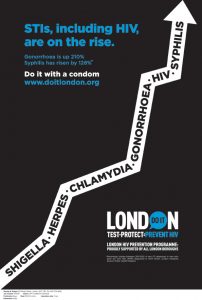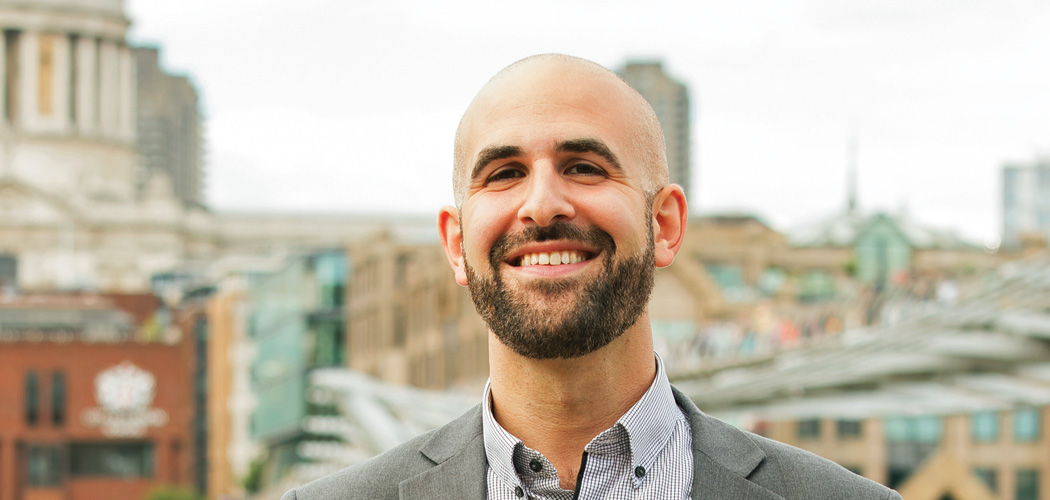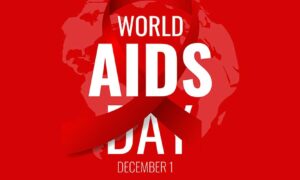
This week sees the launch of the new Do It London campaign, focusing on safer sex in the city. It follows a successful summer drive promoting HIV testing across the capital. Paul Steinberg, Lead Commissioner of the London HIV Prevention Programme, writes exclusively for Boyz about the new campaign.
Last year could prove to have been a crucial tipping point in the fight against HIV. Recent news of a dramatic reduction in HIV diagnoses in four major London GUM clinics has had everyone working in the field excited and hopeful. Many are citing it as a victory for Pre-Exposure Prophylaxis (PrEP), which some gay men are already buying privately as it’s still not available on the NHS. Yet officials are also advising caution until we get the full picture from other London clinics and the rest of the UK.
One thing’s clear though: this is a great development for our community, after year-on-year rises in HIV diagnoses since the turn of the century. And it points to the effectiveness of a combination of efforts and interventions to tackle the virus during 2016, including the impact of testing campaigns. Just before Christmas, we also read positive news in relation to London’s undiagnosed and late diagnosed HIV rates (a measure of how many people are living with HIV but don’t know it, or those who are diagnosed with HIV years after infection, causing damage to their health). The latest Public Health England data on HIV, revealed that undiagnosed HIV dropped in London from 5,000 in 2014 to 4,420 in 2015. Yet more proof, it seems, that we might finally be witnessing a significant reversal in long-term trends.
Last year, I wrote in Boyz of the importance of ‘combination prevention’, which remains at the heart of the London HIV Prevention Programme’s strategy.
Maintaining your sexual health will always involve a variety of methods at different stages of your life. Above all else, sex should be pleasurable, fulfilling and fun. Good sexual health often begins with simple precautions, like condoms, as well as clinical interventions when needed. Regular testing is a key element, alongside other barrier methods (like gloves for fingering or fisting), PrEP, Treatment as Prevention (TasP) and emergency Post-Exposure Prophylaxis (PEP). Arguably the most important factor underlying all these elements is creating a culture that enables people to have honest, open conversations about HIV/STI status without fear of rejection or stigma. High profile coverage of the topic in magazines like Boyz has no doubt played a huge part in that.
But prevention methods are only effective if people understand how to access and use them. That’s why it’s still crucial to promote basic sexual health knowledge, skills and awareness so that everyone understands how best to protect themselves and how to access the growing range of prevention tools available. Activism, advocacy and public health campaigns are therefore all crucial – each has a role to play to promote the services which will improve and protect health.
Since 2015, we are proud to have created Do It London: a dedicated, capital-wide HIV and sexual health promotion campaign which speaks to all Londoners, regardless of their sexual orientation or ethnic background, and which treats the topic in a grown-up, honest way. Evaluation of our three unique campaigns in the last 18 months – two which promoted HIV testing, a third which promoted safer sex – has revealed the extent to which they have significantly contributed to growing awareness and reported behaviour change around testing and safer sex. This is all supported by the programme’s ongoing free condom service and Do It London outreach teams, expertly delivered by our partners in the NHS and GMI Partnership across the gay scene.
But despite these positive developments, last week’s news had a sting in its tail: rates of sexually transmitted infections in gay men in London are higher than ever, having risen year on year so far this decade.
The latest Do It London campaign aims to remind Londoners of the important role condoms will still need to play in protecting us against rising STIs. Our research on HIV testing messages shows that, the more aware people are of the risks, the more likely they are to change their behaviour. That’s why the new campaign reveals straightforward facts without stoking unnecessary fear. Its call to action is simple and clear: ‘Do it with a condom’.
Between 2011 and 2015, gonorrhoea diagnoses rose by 210% among gay and bisexual men in London; syphilis went up by 128% in the same period. This isn’t just our problem – the statistics show smaller increases among all Londoners – but research shows that condomless sex is a major factor on sharp rises of all STIs among men who have sex with men.
Whilst some STIs, such as herpes, are actually incurable (though not fatal), others are becoming more difficult to cure. So-called ‘super-gonorrhoea’ is the bug that grabbed the headlines last year, with antibiotic resistance increasingly of concern for sexual health specialists. So while we celebrate the breakthroughs in reducing HIV incidence, we need to renew our efforts to promote even better sexual health for London in the new year.
For more information and signposting to HIV and STI help, visit doitlondon.org.
You can follow the campaign on Twitter @DoItLDN and Facebook DoItLDN.
Know your STIs…
Herpes is highly contagious and can cause painful blisters on the genitals and surrounding areas. It is usually transmitted through sex (oral, anal or vaginal). You can have herpes without any obvious symptoms.
Shigella causes severe diarrhoea and stomach cramps. It is often caught during sexual activity (particularly oral-anal sex). Using a new condom or latex barrier for rimming, as well as latex glove use for fingering and/or fisting can reduce the risk of transmission.
Gonorrhoea and Chlamydia are bacterial infections, usually of the urethra, rectum or throat. They can cause pain or stinging during
urination and sometimes the feeling that you want to urinate but can’t. Some people have no symptoms, which is why it’s important both to protect yourself and your partners, as well as getting screened at least once per year (or more if you have multiple sexual partners.
Syphilis is a bacterial infection that causes ulcers (which are often painless) in the genital area. Syphilis can also cause a rash and swollen glands. In its early stages syphilis is very infectious. It can be very dangerous if left untreated for a long time.
HIV is a virus that attacks the immune system. It’s found in bodily fluids including semen, anal fluid, vaginal fluid, blood and breast milk. HIV medication – both as treatment (TasP) and as prevention (PrEP) – is highly effective at managing the virus. The drugs reduce the damage HIV causes to your body, whilst massively reducing your infectiousness to others. In the case of PrEP, the drugs also provide excellent protection for HIV negative people who are exposed to the virus.














